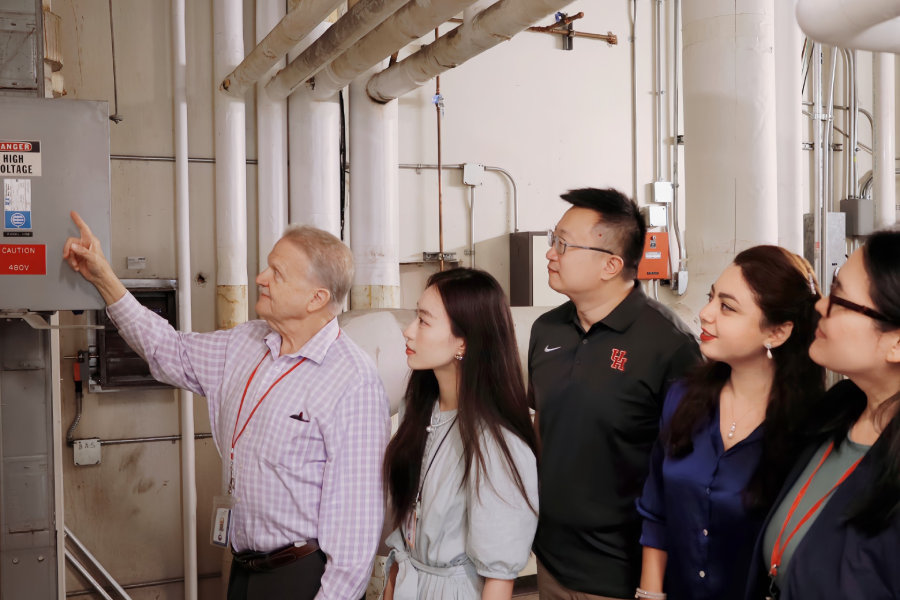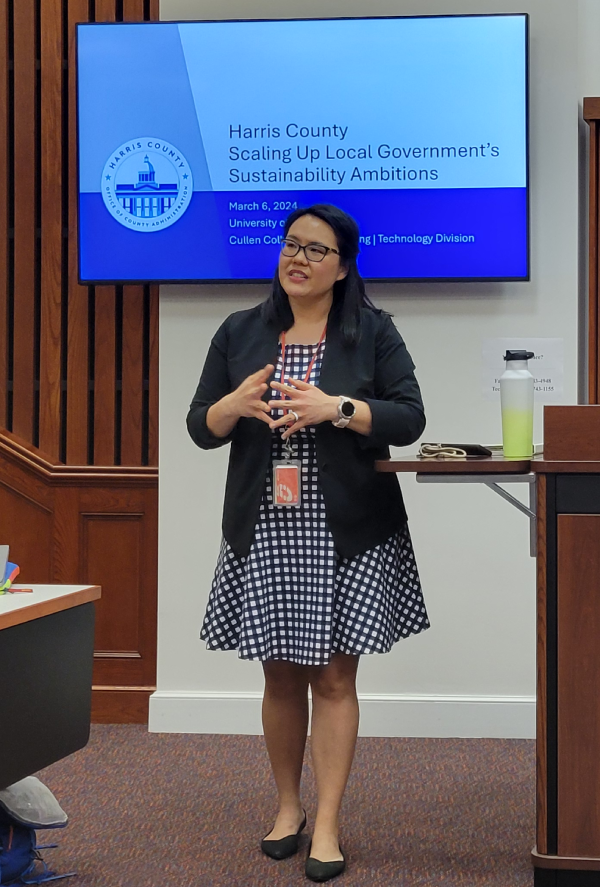In a collaborative project between the Harris County Office of County Administration’s Sustainability Office and the University of Houston, researchers, county staff and the Harris County energy management team within the Sustainability Office are working together to develop a comprehensive baseline of energy use and energy use intensity for County assets. This baseline will enable programs aimed at reducing total energy consumption, maximizing savings and increasing the use of renewable and resilient energy sources for County-owned buildings and operations.
As a first step of this ambitious project, Harris County Sustainability Team and UH research intern Xidan "Delia" Zhang, UH Cullen College of Engineering Assistant Professor of Engineering Technology and Electrical and Computer Engineering Jian Shi, and Moores Professor of Electrical and Computer Engineering Zhu Han have spent the past year working closely with County energy managers Glen Rhoden and Yas Ahmadi.
Their focus has centered warehousing and analyzing energy consumption data from hundreds of County-owned buildings and facilities. Among other accomplishments, the team successfully identified key summertime energy-saving opportunities and completed the retro-commissioning – a process by which the energy performance of existing buildings is analyzed and optimized – of four County buildings. These efforts resulted in over $230,000 in annual electricity savings, with an average simple payback period of two years.
“Over the past two years, Harris County has made significant strides in its energy initiatives, focusing on reducing greenhouse gas emissions, enhancing resilience, and achieving cost savings. The County's first Climate Action Plan has implemented various energy efficiency measures, such as retro-commissioning, demand response programs, and optimizing building automation systems. These efforts have led to substantial cost savings and emission reductions," said Harris County Director of Sustainability Lisa Lin.
Looking ahead to Fall 2024, the team plans to undertake additional building projects, including building automation system (BAS) upgrades, LED lighting installations and the development of solar energy and heat pump initiatives. These initiatives aim to reduce electricity usage by at least 5% per year for County-owned buildings and operations by 2030. The success of this project will support other energy-related initiatives, set a precedent for sustainable practices, and advance the County's vision of a resilient and sustainable energy future.
"I am very fortunate to have seen firsthand how data-driven strategies can shape energy initiatives that transform the way we operate our buildings," Zhang said.
In collaboration with the University of Houston, Harris County's energy initiatives not only enhance grid reliability and reduce energy costs but also contribute to the climate action plan (CAP) goal of reducing greenhouse gas emissions from County-owned buildings by 50% over the next five years. By fostering community-based energy programs and promoting sustainable practices, Harris County is reinforcing its leadership in climate action and energy efficiency.
“As the Energy University, UH has core strength in the research and development of carbon neutralization and smart grid technologies," said Han. "The strategic partnership between the University of Houston and Harris County will amplify our research impacts and benefit the 4.8 million residents in Harris County by saving cost, cutting down emissions, and enhancing resilience.”

